Solutions and Case Studies
Geothermal power generation facilities are contributing to economic and social development in West Sumatra, Indonesia
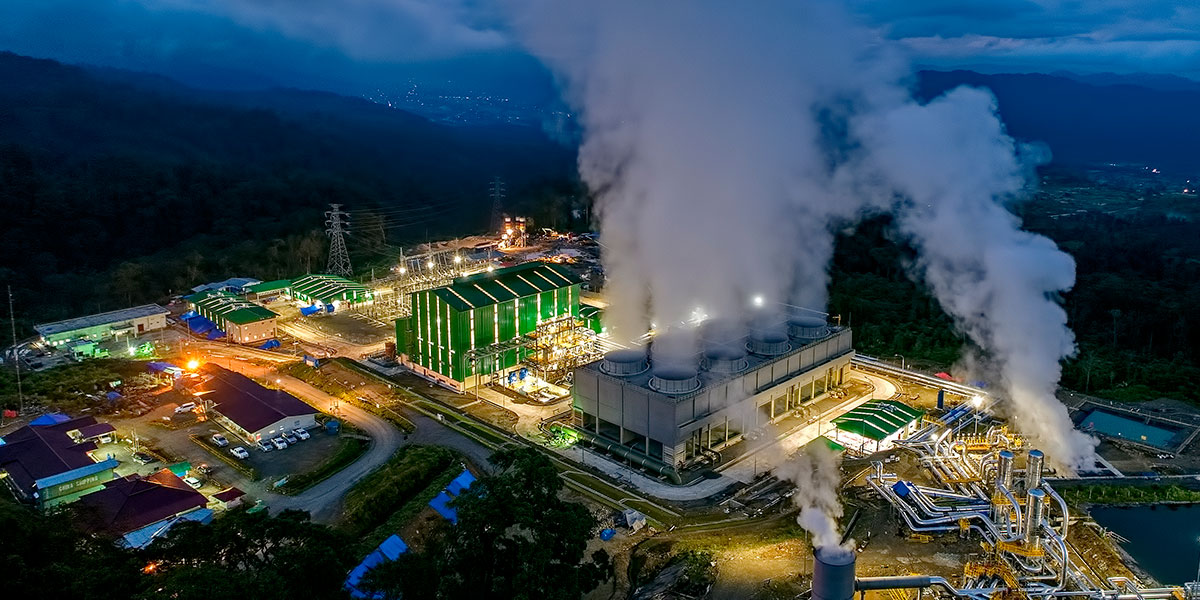
Courtesy of PT. SEML
-
Muara Laboh Geothermal Power Plant supplies power for about 420,000 households.
-
Fuji Electric has a 50% share of geothermal steam turbines in Indonesia! Contributing to the widespread utilization of renewable energy around the world.
-
Guaranteed plant performance and on-time completion achieved by overcoming various project-specific issues and utilizing optimized design.
Muara Laboh Geothermal Power Plant supplies power for about 420,000 households.
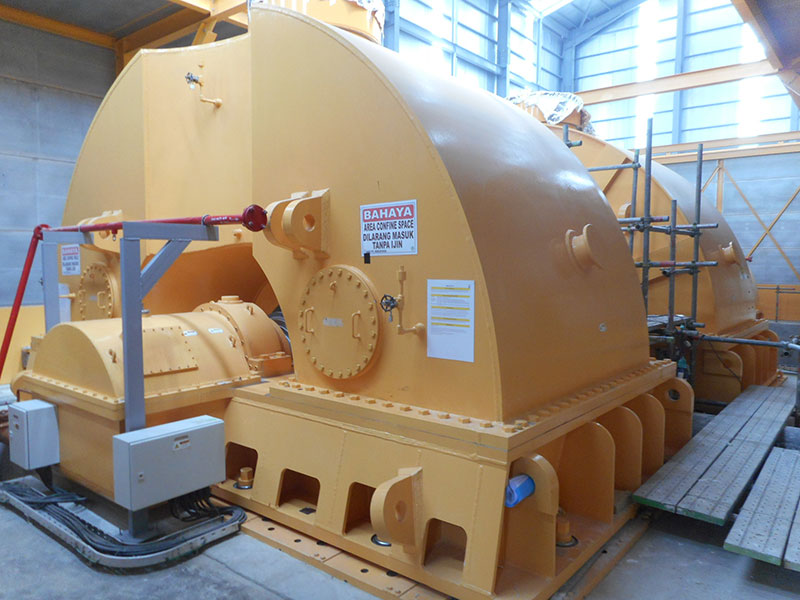
Indonesia has the world’s second-largest amount of geothermal resources. The Muara Laboh Geothermal Power Plant (power generation capacity: 85 MW, flash type) is located in the mountainous area of West Sumatra in Indonesia, about 5 hours by vehicle from the nearest airport, and started its commercial operation in December 2019. The electricity generated by this power plant serves about 420,000 households in Indonesia and is supplied to the entire western part of Sumatra.
A consortium of Sumitomo Corporation and a major local engineering firm PT Rekayasa Industri (REKIND) concluded a turnkey contract with Supreme Energy Muara Laboh (SEML) to provide engineering, procurement and construction (EPC) services for the power plant. As a subcontractor to Sumitomo Corporation, Fuji Electric was in charge of the engineering of the entire plant and the procurement of the main equipment, including steam turbine and generator manufactured at our Kawasaki Factory and electric motors and TGR integrated digital control systems for the turbine and generator manufactured at our Suzuka Factory.
A 50% share of geothermal steam turbines in Indonesia!
Contributing to the widespread utilization of renewable energy around the world.
Contributing to the widespread utilization of renewable energy around the world.
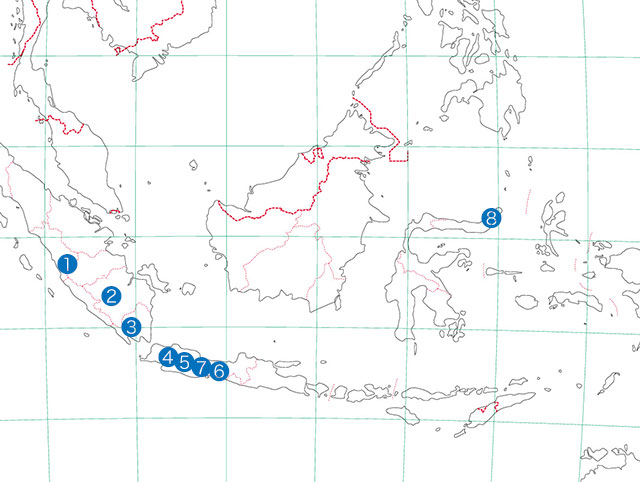
Fuji Electric’s geothermal power generation equipment delivery record in Indonesia
(1) Muara Laboh Geothermal Power Plant: 85.26 MW
(2) Rantau Dedap Geothermal Power Plant: 98.4 MW (2 × 49.2 MW)
(3) Ulubelu Geothermal Power Plants 1 and 2: 110 MW (2 × 55 MW), 3 and 4: 117.6 MW (2 × 58.8 MW)
(4) Salak Geothermal Power Plants 4, 5, and 6: 165 MW (3 × 55 MW)
(5) Wayang Windu Geothermal Power Plant: 227 MW (Unit 1: 110 MW, Unit 2: 117 MW)
(6) Kamojang Geothermal Power Plant 4: 63 MW (1 × 63 MW), Kamojang Geothermal Power Plant 5: 37 MW (1 × 37 MW)
(7) Darajat Geothermal Power Plant: 307.5 MVA (Generator only, Unit 1: 68.8 MVA, Unit 2: 100.7 MVA, Unit 3: 138 MVA)
(8) Lahendong Geothermal Power Plants 2, 3, and 4: 60 MW (3 × 20 MW), Lahendong Geothermal Power Plants 5 and 6: 43 MW (2 × 21.5 MW)
Geothermal power does not make use of fossil fuels and emits no CO2 because it utilizes steam from under the ground to rotate a turbine and generator to generate electricity. For this reason, geothermal power generation is spreading throughout the world due to increasing environmental awareness with global warming in the background. Although Indonesia has enjoyed remarkable economic growth in recent years, there are still non-electrified areas in the country. The Indonesian government has decided to increase its total geothermal power generation capacity in order to improve the power infrastructure and utilize one of the richest geothermal resources in the world, and has instituted a policy that aims to increase from about 2,000 MW (as of 2019) to 7,200 MW by 2025.
Fuji Electric has delivered 19 steam turbines for geothermal power plant in Indonesia, amounting to a 50% share in the country. According to our delivery records from 2000 and thereafter (based on our in-company survey), Fuji Electric enjoys about 40% of the global market share in this field and is contributing to the wider use of geothermal power generation throughout the world.
Guaranteed plant performance and on-time completion achieved by overcoming various project-specific issues and utilizing optimized design.
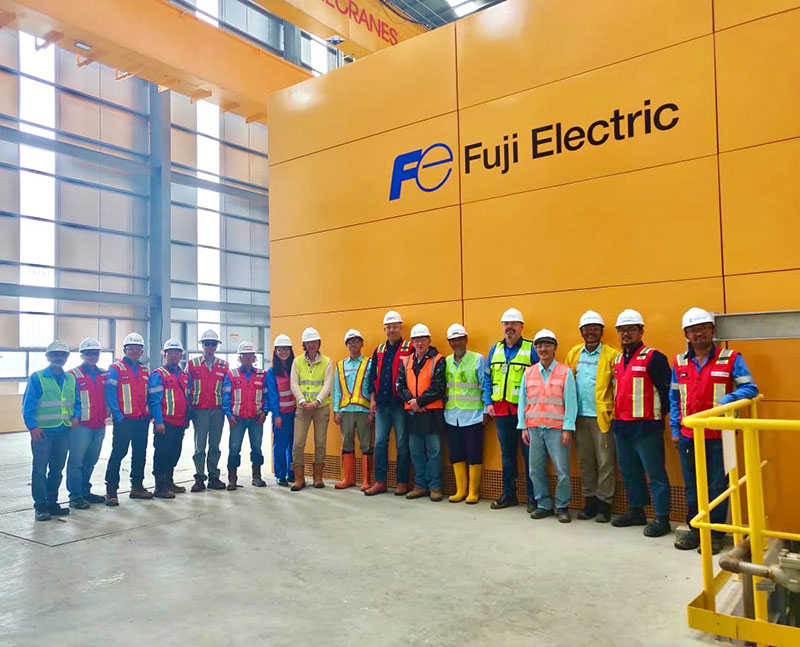
This was our first geothermal development project for SEML and we had a strong desire for a successful completion. While building good relationships, we cooperated with SEML, and our partners Sumitomo Corporation and REKIND. We overcame various problems that were peculiar to this project such as remoteness of the site, optimization of the construction processes, and a diffculty of long-distance transportation. In addition, by providing an optimal plant design that took into account various site-specific conditions, we completed the construction of a highly efficient plant that exceeded the SEML's expectations by achieving guaranteed plant performance and plant completion date.
Fuji Electric’s Mr. Hattori and Ms. Hondo described the project as follows.
Hattori: This was a very difficult project, and it involved stringent specifications from the client as well as requests from our team members for improvements based on the experiences we’ve had with our existing plants. But we responded sincerely to each and every one of these issues without giving up, and I think we completed a plant that satisfied our client.
Hondo: I’m very happy that we contributed to the development of Indonesia. We would like to continue to expand our renewable energy business including geothermal power generation and continue to contribute to the creation of safe, secure and sustainable societies.
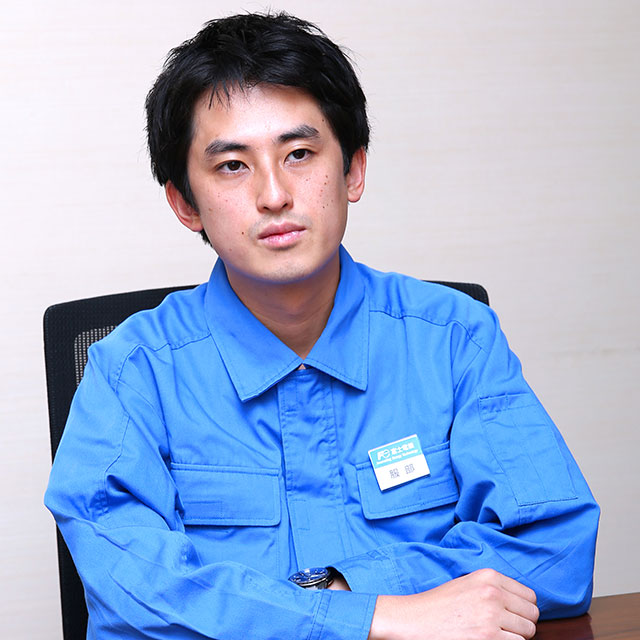
Assistant Project Leader, Fuji Electric
Muara Laboh Geothermal Power Generation Project
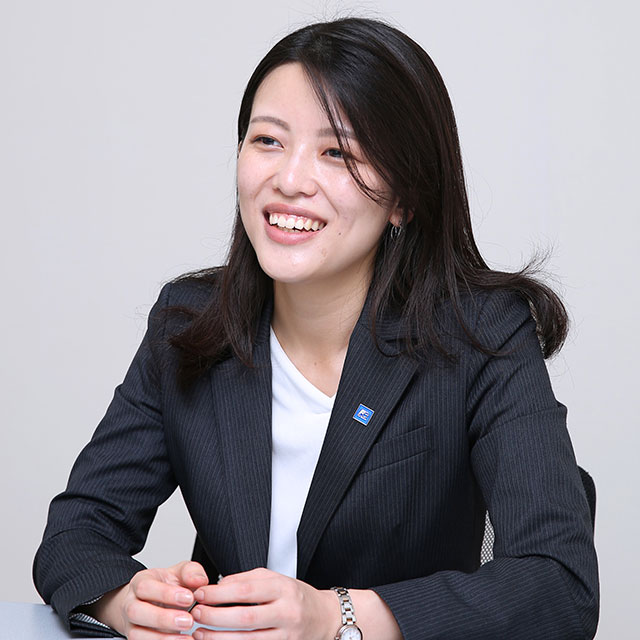
Sales, Fuji Electric
Muara Laboh Geothermal Power Generation Project
Fuji Electric will continue to innovate energy and environmental technologies and contribute to the widespread utilization of geothermal power generation.


